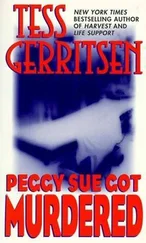Sarah Caudwell
THUS WAS ADONIS MURDERED
To J.G.F.C.G.
for all the letters I’ve failed to write you
Scholarship asks, thank God, no recompense but Truth. It is not for the sake of material reward that she (Scholarship) pursues her (Truth) through the undergrowth of Ignorance, shining on Obscurity the bright torch of Reason and clearing aside the tangled thorns of Error with the keen secateurs of Intellect. Nor is it for the sake of public glory and the applause of the multitude: the scholar is indifferent to vulgar acclaim. Nor is it even in the hope that those few intimate friends who have observed at first hand the labour of the chase will mark with a word or two of discerning congratulation its eventual achievement. Which is very fortunate, because they don’t.
If the events in which Julia Larwood became involved last September had not been subjected to the penetrating scrutiny of the trained scholar — that is to say, my own — well, I do not say it is certain that Julia would even now be languishing in a Venetian prison. The crime being thought to be one of passion, great lenience might have been shown; the Italian Government might have declared an amnesty; the Foreign Office might have done something. Very possibly. I do say, however, that it was only as a result of my own investigation that Julia’s innocence was conclusively established and that she returned to England without a stain on her character.
As an instance of what the methods of Scholarship may achieve, the affair seems not unworthy of some written record. And you may think, dear reader, that those who had been able — modesty forbids me to say, if others do not choose to, privileged — to observe for themselves the process of my reasoning would have competed in eagerness to undertake the task. How little, if you think so, do you know the Chancery Bar. Timothy Shepherd — additionally inspired by the reverence which ought to be felt for his former tutor — that is to say, myself — Timothy, you might imagine, would have been delighted by the opportunity. But no — Timothy has a case on the Companies Act coming up in the House of Lords; he is weeks behind with his paperwork; he cannot do it. Selena Jardine, who is fond of Julia and would have been distressed by her prolonged incarceration — no, Selena is engaged in a planning enquiry on behalf of certain objectors to a road-widening scheme; she is months behind with her paperwork; she cannot possibly do it. Michael Cantrip and Desmond Ragwort, of the same Chambers — Cantrip is instructed on behalf of a lady who claims by custom immemorial to be entitled to hang her washing across her neighbour’s garden; the neighbour has instructed Ragwort to oppose the claim; they confidently expect the matter to occupy their attention for the best part of term, and that of a High Court Judge for at least a fortnight: no, clearly they cannot do it.
I am obliged, therefore, with some reluctance, to do the thing myself. It means my own work must be laid aside: the day must be deferred to a yet more distant future which sees the publication of Causa in the Early Common Law by Hilary Tamar and the appearance in learned journals of such phrases as “Professor Tamar’s masterly exposition,” “Professor Tamar’s revolutionary analysis” and so forth. But I am content to make the sacrifice — if I hesitate, it is for fear that some of my readers will suspect that my motive for publication is mere self-advertisement. The danger of incurring so contemptible an opinion has almost deterred me; but I cannot allow mere personal delicacy to deprive the public of a possibly useful and instructive chronicle. I shall set down what happened, as it happened: and if, in the cause of Truth, I am unable to minimize my own achievement, I hope that the wiser spirits — I refer, in particular, dear reader, to yourself — will not think the worse of me for it.
I had decided to spend September in London — my work on the concept of causa required me to study various original documents in the Public Record Office. And Oxford in September is not at all amusing.
I had at first been uncertain where I should stay. For the occasional night or two, I am sure of a welcome at Timothy’s flat in Middle Temple Lane. I feared, however, that my presence for a whole month might place an excessive strain on his hospitality. Fortune came to my aid: a former colleague of mine, now the owner of a house and two cats in Islington, had arranged to spend the month in the United States of America and had realized, at a late stage, the difficulty of taking the cats with him to that country — he wrote in piteous terms, begging me to come and care for them. Happy to be of assistance to a fellow scholar, I consented.
On my first day in London I made an early start. Reaching the Public Record Office not much after ten, I soon secured the papers needed for my research and settled in my place. I became, as is the way of the scholar, so deeply absorbed as to lose all consciousness of my surroundings or of the passage of time. When at last I came to myself, it was almost eleven and I was quite exhausted: I knew I could not prudently continue without refreshment.
If, at eleven o’clock on a weekday morning, you leave the Public Record Office, turn right down Chancery Lane and continue past the Silver Vaults to the nearest coffee house, you will generally find gathered there (professional obligations and their Clerk permitting) the junior members of 62 New Square. They are a decorative little group — it would be a difficult taste that was pleased by none of them. Between Ragwort and Cantrip there are certain points of resemblance: they are the same age; of similar height; both thin; both very pale. But it is for those whose pleasure lies in the conquest of virtue that Ragwort’s delicate profile and demure autumnal colouring have a most particular charm. Cantrip, in sharp contrast, has eyes and hair of a witchlike blackness, more pleasing to those whose preference is for a savour of iniquity. Selena — I can think of no especially striking feature by which you might distinguish Selena from any other pretty woman in her middle twenties, average in height and roundness of figure, with hair an inconstant shade of blonde; I mean, until she speaks: for her voice is unmistakable, smooth and persuasive, the envy of rival advocates. But until then — well, if you can imagine a Persian cat which has just completed a successful cross-examination, that will give you some idea of her. Timothy, my former pupil, being by some two or three years the senior in call to the Bar, is detained more often than not by the claims of his profession and was absent on the morning of which I write — there is little point, therefore, in my describing him.
They will be debating one of those diverse questions which interest the minds of the Chancery Bar — when to apply by summons rather than by motion, what to do about Ireland, or whose turn it is to pay for coffee.
“Perfectly scandalous,” Ragwort was saying as I entered the coffee house. The object of his disapproval might have been almost anything — Ragwort has such high principles. It turned out on this occasion to be the price of coffee. But he is a young man of graceful manners — on seeing me he ordered another cup, almost without hesitation.
I had feared, in the middle of the Long Vacation, to find Lincoln’s Inn deserted. I expressed my surprise and pleasure at finding them.
“My dear Hilary,” said Selena, “you surely know by now that in the period ironically called the Long Vacation, Henry allows us to be away from Chambers for no more than a fortnight. Cantrip and I have already taken our fortnights — Ragwort is saving his for the end of the month.”
Читать дальше











